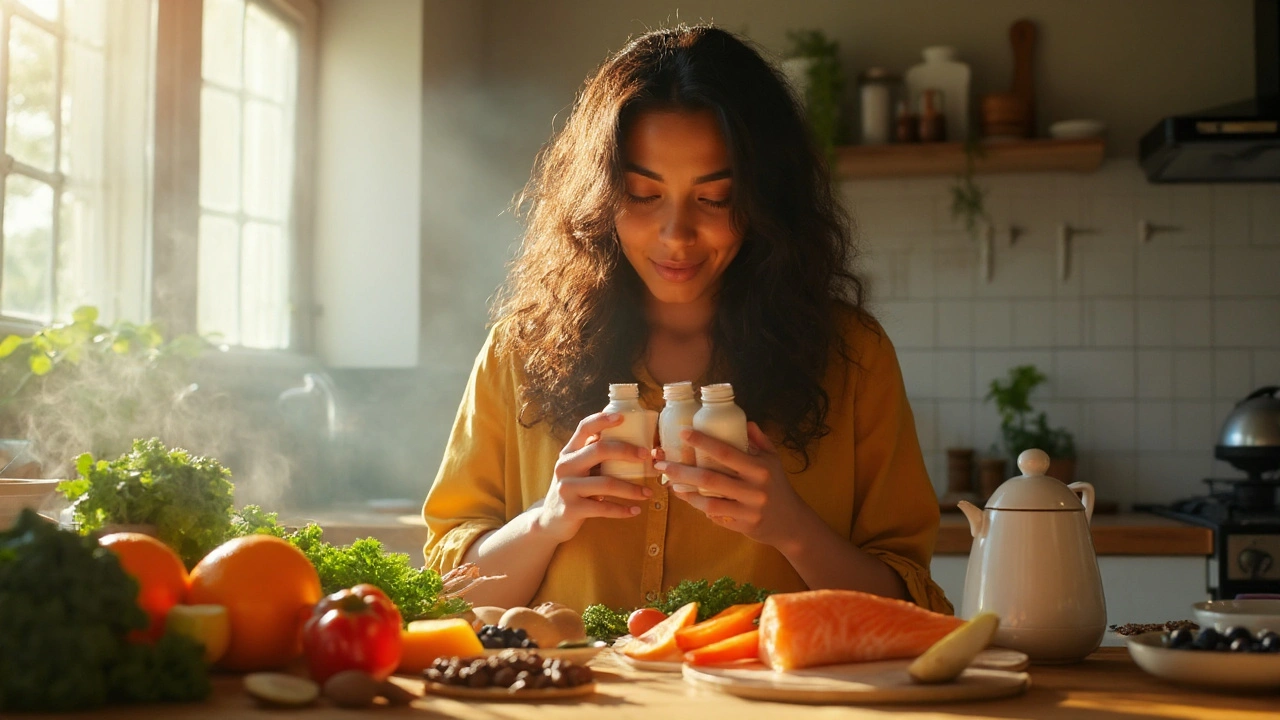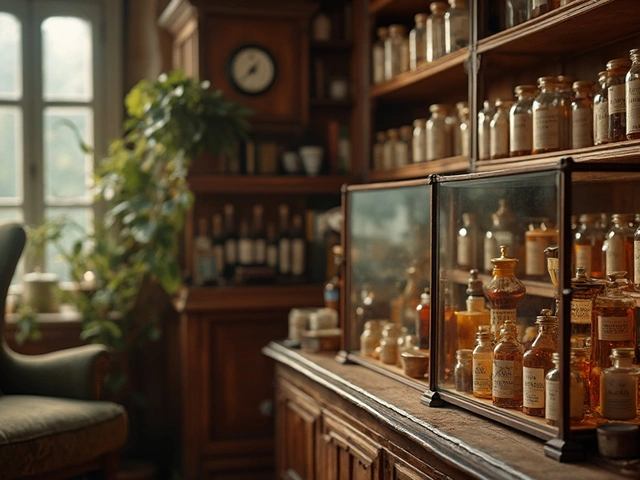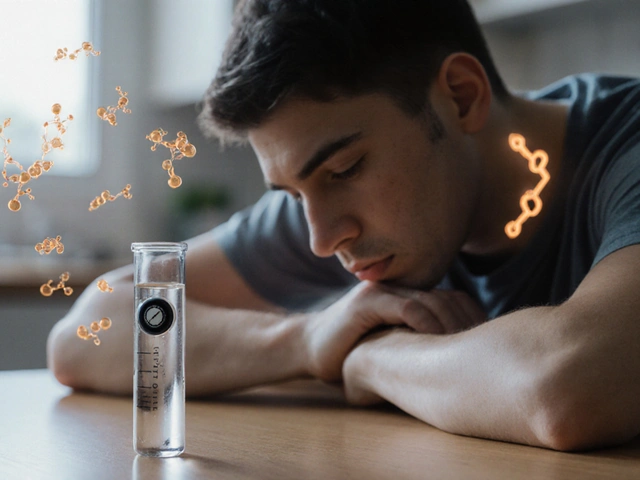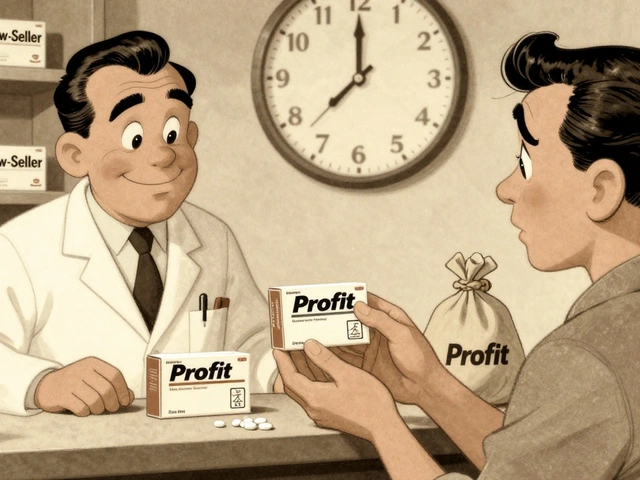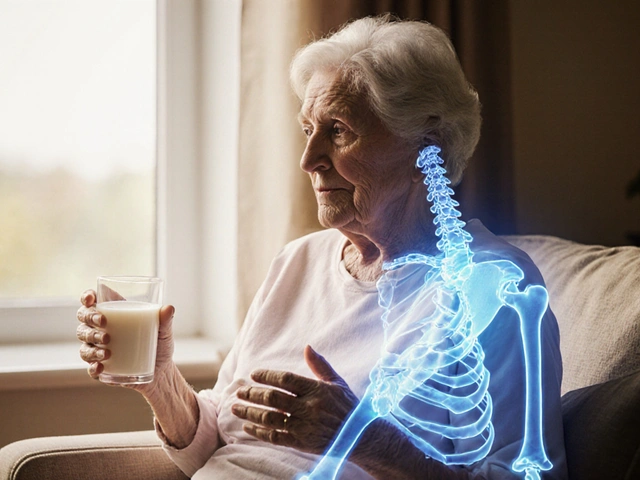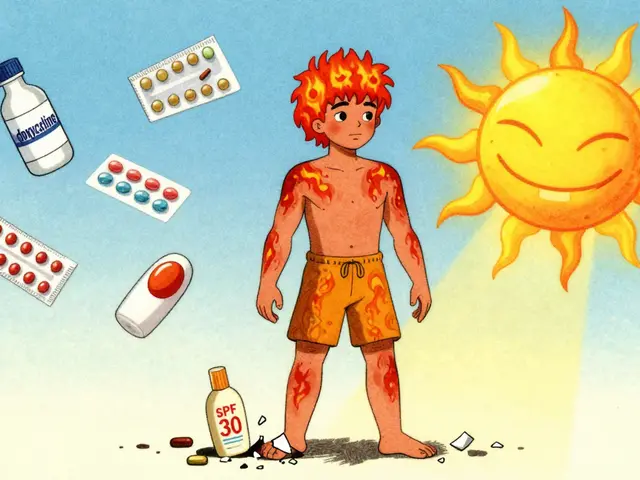Vitamin D: What It Is and Why It Matters
Vitamin D isn’t just another nutrient – it’s a hormone that helps your body absorb calcium, supports your immune system, and keeps mood swings in check. Most people hear about it when they talk about bone health, but the truth is it does a lot more than that. If you’re wondering whether you’re getting enough, the answer often lies in your daily routine, diet, and where you live.
When your skin is exposed to sunlight, it makes vitamin D naturally. That’s why it’s sometimes called the “sunshine vitamin.” However, modern life keeps many of us indoors, and cloudy climates can limit that natural boost. That’s where food and supplements step in.
Top Natural Sources of Vitamin D
Getting vitamin D from food is easier than you think. Fatty fish like salmon, mackerel, and sardines are packed with it. A single serving of cooked salmon can cover most of the daily recommendation. If fish isn’t your thing, look for fortified foods – many dairy products, plant milks, orange juice, and cereals have vitamin D added.
Egg yolks also contain small amounts, and mushrooms exposed to UV light can supply a decent dose. For vegans or those avoiding animal products, fortified plant milks or supplements become essential to meet needs.
When to Consider Supplements
If you’re over 50, have darker skin, live far from the equator, or spend most of your day indoors, a supplement can fill the gap. The standard adult dosage is 600‑800 IU per day, but some doctors suggest higher amounts for people with confirmed deficiency.
Symptoms of low vitamin D include frequent colds, bone pain, muscle weakness, and mood changes. A simple blood test can tell you if you’re deficient. If your levels are low, a short‑term high‑dose regimen (often 1,000‑2,000 IU daily) can raise them quickly, but always follow a healthcare professional’s guidance.
Be careful with mega‑doses. Too much vitamin D can lead to calcium buildup in the blood, causing nausea, headaches, and kidney issues. Stick to the recommended range unless monitored by a doctor.
Practical tips to boost your vitamin D naturally: aim for 10‑30 minutes of midday sun a few times a week, wear short sleeves if the UV index is moderate, and pair sun exposure with a balanced diet. If you’re using sunscreen, you might need a bit more time outdoors, but avoid sunburn.
In summary, vitamin D is a vital player in bone strength, immune defense, and overall wellbeing. Get it from sunlight, food, or a sensible supplement, and keep an eye on your levels if you fall into a higher‑risk group. A little awareness goes a long way toward staying healthy and feeling great.
